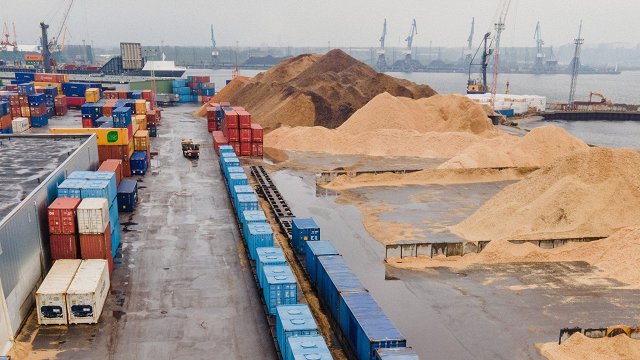Grain imports from Russia have risen 3.2 times since Russia began a full-scale invasion of Ukraine, according to the information report provided to the government. In 11 months of last year, imports of grain from Russia were 332 thousand tonnes. Grain transit from Russia was 1.94 million tonnes in 11 months of last year.
Agriculture Minister Armands Krauze (Union of Greens and Farmers), however, stresses that the import data recently seen do not reflect the true volume of grain remaining in Latvia, as some grain travels further to other Member States of the European Union.
“According to information available to us, only a tiny, tiny amount remains. Most are received further in the European Union,“ Krauze said.
Although precise information on Russian grain consumed in Latvia is not available, industry-related experts believe that Russian grain destined for animal feed remains largely in Latvia. So it would be animal feed users who would be subject to the planned ban on grain imports.
“Our objective is to limit the introduction and use of grain in Latvia, while at the same time not violating European legislation and respecting these principles of the rule of law. So that those who import under European law can also receive grain in other countries,“ Krauze said.
Politicians promise to continue to address colleagues in Europe to stand up for a united position in the European Union.
“If we do not achieve the overall result, including the ban on EU imports, then this objective and the impact on grain prices will be extremely limited. Even now, this is a symbolic step that Latvia has taken to help convince other EU Member States that it still needs to do it,” said Economics Minister Viktors Valainis (Union of Greens and Farmers).
Kristaps Amsils, who heads one of the largest grain processors in the Baltics "Dobeles Dzirnavnieks", meanwhile, said that currently, local farmers suffer not only from imports but also from Russian grain transit through Latvian ports. In particular, transit through the Baltics creates more advantageous logistical opportunities for Russia. Therefore, the Baltic States must unite and limit it. But a ban on imports should be just the first step.
“I think this step is very welcome and right, but to have a much bigger and palpable effect, the transit issue would be the next step,” Amsils said.
Meanwhile, Prime Minister Evika Siliņa (New Unity) said that there is currently no talk of a transit ban because it is not possible to ban transportation to companies in Germany, Poland, France, and other countries. “That is why it is important to raise awareness among EU leaders,” she added.
Russian wheat accounts for 24 percent, or nearly a quarter, of global exports. Before the war began, exports were lower - only 16%, according to Ministry of Agriculture data. The Ministry also says Russia is promoting low-priced exports.





























